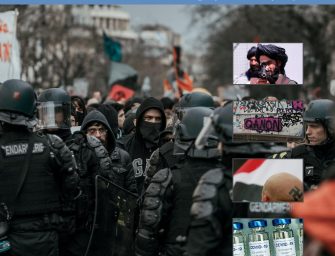#ReaCT2021: Countering radicalisation and terrorism via criminal law
by Francesco Rossi, MacroCrimes, Start InSight, EU Law Live
Countering terrorism is a priority goal for many governments. After each attack, policies converge on the introduction of new crimes, on the increase of penalties, on the provision of exceptional procedural rules, on the strengthening of administrative pre-emptive measures. Such interventions are useful to public security authorities as the latter are allowed to intervene well before a radicalized individual takes action. Yet, by its very nature, counterterrorism criminal law does not affect the causes of radicalisation and terrorism. Punishing mere radicalisation stigmatise an inside phenomenon. The latter is surely aberrant and arguably a precursor to further evolution, yet in its initial stages it cannot be treated as anything other than a form of ideology lacking concrete danger.
An overarching and disproportionate resort to criminal law may even produce crime-inducing side effects. Moreover, the prevailing methods of executing prison sentences are inadequate to tackle the long-standing issue of radicalisation in prison. Against this background, radicalisation shall be addressed as a reversible process.
Also, the issue of the treatment of would-be returnees is superficially addressed. European States are reluctant to repatriate ‘Islamic State families’ (including women and children) out of fear for public security and the political stability of the executive. One of the possible alternatives to repatriation, i.e. the prosecution of members of the Islamic State in Syria and Iraq, seems to be a temptation for many. The more challenging but at the same time ethical and rational possibility of focusing efforts on the social rehabilitation of returnees has not been taken into serious account so far.
For the time being, a large part of the preventive workload is put on surveillance and criminal justice. Counterterrorism criminal law in Europe is generally prison-based, even with regard to facts that arguably do not harm legal goods or interests. Terrorists, radicalised individuals and those undergoing radicalisation are neutralised and surveilled for as long as possible by means of a series of detention measures and sanctions, as well as of security measures after serving the sentence. Conversely, the overview on non-criminal or at least not strictly punishment-based prevention of radicalisation in Europe is still fragmented and questionable. Italy’s legislative delay on this front is evident. However, a consistent view of the ethical limits and concrete goals of the various programmes has not been reached. Likewise, the gap between academic contributions and the real needs of professionals in the field has not been completely bridged.
Against this background, arguably, restorative justice programmes implemented in prison (e.g. in Italy and Spain) with the agreement and active participation of perpetrators and victims of terrorist crimes should be carefully assessed. As suggested by the approach adopted by the cross-disciplinary research ‘Il libro dell’incontro. Vittime e responsabili della lotta armata a confronto’[1], such programmes can contribute to tailor the criminal justice response as much as possible to the experience of the parties involved. As an ultimate goal, reconciliatory programmes aim to prevent a ‘relapse’ into radicalisation and/or recidivism in terrorist crimes, as well as to facilitate reintegration into society. Against this background, however, there is still a long way to go.
[1] G. Bertagna, A. Ceretti, C. Mazzucato (eds.), Milan, 2015.
























There are no comments
Add yours